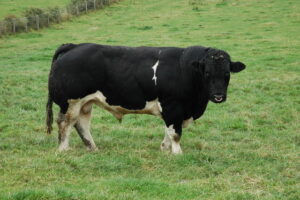
A farmer using precision agriculture technology such as a GPS guided tractor in a well managed field.webp.webp
Definition: Farm Management
Farm management is the strategic process of planning, organizing, directing, and controlling the agricultural activities and resources of a farm to achieve specific financial and production goals. It encompasses a wide range of practices and decisions that include crop production, livestock management, financial planning, marketing, and resource utilization. Effective farm management aims to maximize productivity and profitability while ensuring sustainability and environmental stewardship. This involves making informed decisions on crop selection, breeding practices, labor management, equipment usage, and the implementation of modern agricultural technologies. Farm managers must also navigate external factors such as market fluctuations, weather conditions, and government policies, adapting their strategies to mitigate risks and capitalize on opportunities.
Farm management requires a holistic understanding of both the technical and economic aspects of farming. It integrates scientific knowledge, practical skills, and business acumen to optimize the use of inputs like seeds, fertilizers, water, and labor. By employing best practices in soil health, pest control, and irrigation, farm managers enhance crop yields and livestock performance. Additionally, financial management plays a crucial role, involving budgeting, cost analysis, investment planning, and record-keeping. Effective communication and leadership skills are also essential, as farm managers often coordinate a team of workers and interact with stakeholders such as suppliers, buyers, and regulatory bodies. Overall, farm management is a dynamic and multifaceted discipline that ensures the efficient and sustainable operation of agricultural enterprises.
Fall off the barn roof and busted your keister? Life on the farm or ranch can be tough on the bum. Need a break? Laugh it off at FarmerCowboy.com, the #1 farm humor site. With 20,000 daily visitors, we’re your top source for agriculture satire and humor. Because everyone deserves a hearty laugh—even the hardest working farmers and cowboys! Join us and turn those long days into fun tales at FarmerCowboy.com.
Comprehensive Guide to Farm Management
Introduction to Farm Management
Farm management is an integral aspect of agricultural operations, encompassing the entire process of running a farm from planning and production to marketing and finance. It involves making strategic decisions that balance productivity, profitability, and sustainability. Effective farm management is critical for achieving long-term success in agriculture, particularly in an era of rapid technological advancement and changing environmental conditions.
Key Components of Farm Management
Crop Production Management
Crop production management involves selecting the right crops to grow, determining the best planting times, and implementing appropriate cultivation techniques. It includes soil preparation, planting, fertilization, irrigation, pest and weed control, and harvesting. Effective crop management maximizes yields, reduces costs, and ensures high-quality produce.
Livestock Management
Livestock management focuses on the care and breeding of animals for meat, milk, wool, or other products. This includes selecting suitable breeds, providing balanced nutrition, ensuring proper housing, monitoring health, and managing reproduction. Proper livestock management improves productivity and animal welfare while minimizing environmental impact.
Financial Management
Financial management in farming involves budgeting, accounting, and financial planning. It includes tracking income and expenses, managing cash flow, securing financing, and analyzing profitability. Effective financial management ensures the economic sustainability of the farm, enabling informed decision-making and long-term planning.
Resource Management
Resource management encompasses the efficient use of natural resources such as soil, water, and biodiversity. It includes practices like crop rotation, conservation tillage, water-saving irrigation techniques, and integrated pest management. Sustainable resource management enhances productivity, maintains soil health, and reduces environmental impact.
Risk Management
Risk management involves identifying, assessing, and mitigating risks associated with farming. These risks can include weather variability, market fluctuations, pest and disease outbreaks, and changes in government policies. Strategies such as diversification, insurance, and contingency planning help manage risks and ensure farm resilience.
Best Practices in Farm Management
Soil Health Management
Maintaining soil health is fundamental to successful crop production. Practices such as crop rotation, cover cropping, reduced tillage, and organic amendments improve soil structure, fertility, and microbial activity. Regular soil testing helps monitor nutrient levels and guide fertilization practices.
Efficient Water Use
Efficient water use is crucial for sustainable farming, particularly in regions with limited water resources. Techniques such as drip irrigation, mulching, and rainwater harvesting optimize water use and reduce waste. Monitoring soil moisture and weather forecasts helps plan irrigation schedules.
Integrated Pest Management (IPM)
IPM is an ecological approach to pest control that combines biological, cultural, mechanical, and chemical methods. It aims to minimize the use of synthetic pesticides and reduce pest populations to manageable levels. Monitoring pest levels and using natural predators are key components of IPM.
Technology Integration
Modern technologies such as precision agriculture, remote sensing, and data analytics enhance farm management. Precision agriculture uses GPS, sensors, and drones to optimize planting, fertilization, and irrigation. Data analytics helps in decision-making by providing insights into crop performance, weather patterns, and market trends.
Labor Management
Effective labor management involves recruiting, training, and supervising farm workers. Providing fair wages, safe working conditions, and opportunities for skill development enhances productivity and job satisfaction. Clear communication and task delegation ensure efficient operations.
Case Study: Successful Farm Management Practices
The Smith Family Farm
The Smith Family Farm, a 500-acre mixed-crop and livestock farm in Iowa, exemplifies successful farm management practices. By adopting modern technologies and sustainable practices, the farm has achieved significant productivity and profitability gains.
Crop Production: The Smiths use precision agriculture techniques, including GPS-guided planting and variable-rate fertilization, to optimize crop yields. They rotate corn, soybeans, and cover crops to maintain soil health and reduce pest pressure.
Livestock Management: The farm’s livestock operations include a herd of Angus cattle and a flock of sheep. They use rotational grazing to improve pasture quality and animal health. The Smiths also implement a rigorous health monitoring program to prevent diseases and ensure high productivity.
Financial Management: Detailed budgeting and financial planning have enabled the Smiths to make informed investment decisions, such as purchasing new equipment and expanding their operations. They maintain accurate records and regularly review their financial performance to identify areas for improvement.
Resource Management: The Smiths practice conservation tillage and cover cropping to enhance soil health and reduce erosion. They also use drip irrigation to conserve water and ensure efficient use of resources.
Risk Management: Diversification of crops and livestock, along with comprehensive insurance coverage, helps mitigate risks. The Smiths also stay informed about market trends and government policies to adapt their strategies accordingly.
Challenges in Farm Management
Market Volatility
Fluctuations in commodity prices and input costs can significantly impact farm profitability. Farmers must stay informed about market trends and use risk management tools like futures contracts and hedging to protect against price volatility.
Climate Change
Climate change poses a significant threat to agriculture, affecting weather patterns, water availability, and pest pressures. Farmers need to adopt climate-smart practices, such as drought-resistant crops, efficient water use, and diversified farming systems, to build resilience.
Regulatory Compliance
Adhering to government regulations on environmental protection, food safety, and labor standards can be challenging. Farmers must stay updated on regulatory requirements and implement best practices to ensure compliance.
Access to Capital
Securing financing for farm operations and investments can be difficult, especially for small and beginning farmers. Developing a strong business plan and maintaining good financial records can improve access to loans and grants.
Future Trends in Farm Management
Sustainable Agriculture
The demand for sustainable and organic products is growing, encouraging farmers to adopt environmentally friendly practices. Sustainable agriculture focuses on long-term soil health, biodiversity, and reducing chemical inputs.
Digital Agriculture
Advances in digital technology are transforming farm management. Tools such as farm management software, mobile apps, and online marketplaces are improving efficiency and market access. Blockchain technology is also emerging to enhance traceability and transparency in supply chains.
Climate-Smart Agriculture
Climate-smart agriculture aims to increase productivity, enhance resilience, and reduce greenhouse gas emissions. Practices include agroforestry, conservation agriculture, and precision farming. Farmers are increasingly adopting these practices to mitigate climate risks and contribute to environmental sustainability.
Conclusion
Farm management is a dynamic and multifaceted discipline that integrates scientific knowledge, practical skills, and business acumen to optimize agricultural operations. By implementing best practices in crop production, livestock management, financial planning, and resource utilization, farmers can achieve their goals of productivity, profitability, and sustainability. Staying informed about market trends, technological advancements, and regulatory requirements is essential for effective farm management.
How Knowledge of Farm Management Can Help Farmers
Understanding farm management principles and practices can significantly enhance a farmer’s ability to run a successful operation. Knowledge of financial planning, resource management, and risk mitigation helps farmers make informed decisions, optimize resource use, and improve profitability. Additionally, staying updated on technological advancements and sustainable practices can enhance productivity and resilience, ensuring long-term success in agriculture.
Resources for Further Reading
To further explore farm management and related agricultural topics, visit the following resources:
Image Gallery



Originally posted 2024-05-24 04:50:01.
Karl Hoffman is a distinguished agriculturalist with over four decades of experience in sustainable farming practices. He holds a Ph.D. in Agronomy from Cornell University and has made significant contributions as a professor at Iowa State University. Hoffman’s groundbreaking research on integrated pest management and soil health has revolutionized modern agriculture. As a respected farm journalist, his column “Field Notes with Karl Hoffman” and his blog “The Modern Farmer” provide insightful, practical advice to a global audience. Hoffman’s work with the USDA and the United Nations FAO has enhanced food security worldwide. His awards include the USDA’s Distinguished Service Award and the World Food Prize, reflecting his profound impact on agriculture and sustainability.






The internet gives you the opportunity to learn and grow whenever and wherever you like. ??
This is too good to pass up! ??